Stone for Development students round up their summer work experience
The Stone for Development Work-Integrated Learning program summer semester 2022/2023 kicked off late November 2022 with a diverse cohort of participants from The University of Queensland and Pacific islands-based students. The two-week field work component of the program took place in Fiji in February and gave participants an opportunity to take a deep dive into the indispensable role Development Minerals play in the context of disaster reconstruction and climate change adaptation in Pacific Small Island Developing States (SIDS).
Stone for Development introduces early career scientists to the challenges of sustainable development, through the lens of Development Minerals. The program is an initiative of the Development Minerals Program at The University of Queensland’s Sustainable Minerals Institute and is supported by UNESCO’s International Geoscience Programme, the Australian Department of Foreign Affairs and Trade, the ACP-EU Development Minerals Programme implemented by UNDP, as well as the Fiji Ministry of Lands and Mineral Resources, the Pacific Community (SPC) and Fiji National University.
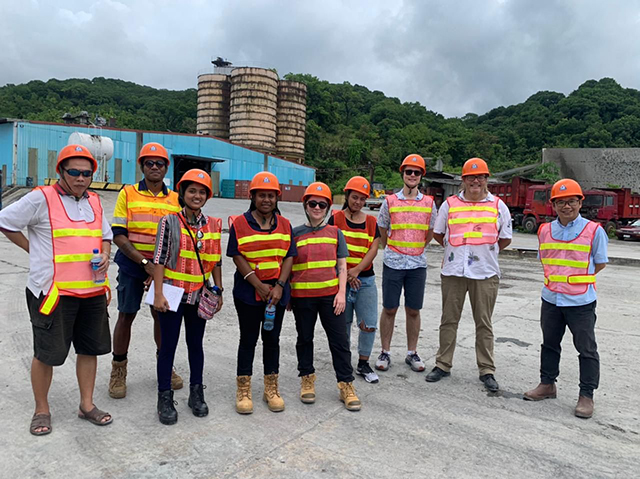
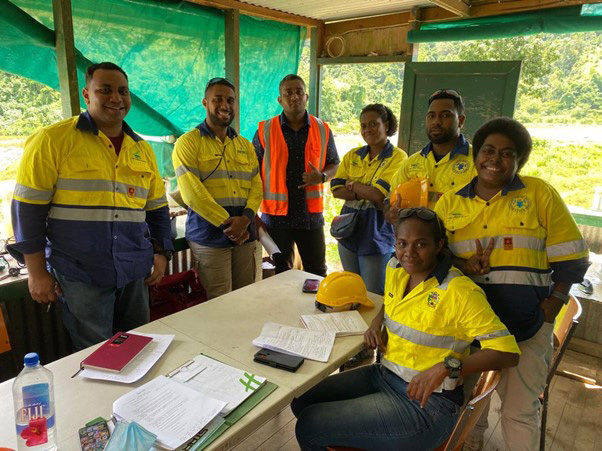
Miriama Toria Madigibuli, a Fiji-based student with an Environmental Science and Management background, saw her interest in Development Minerals grew gradually as she joined the Mineral Resource Department within the Fijian Ministry of Lands and Minerals Resources as an intern.
“I decided to apply for the Stone for Development program, as I wanted to upgrade and broaden my knowledge of Development Minerals,” said Miriama.
“I was waiting for an opportunity to attend a training or short course based on this field, and to my surprise the Stone for Development program was in reach.”
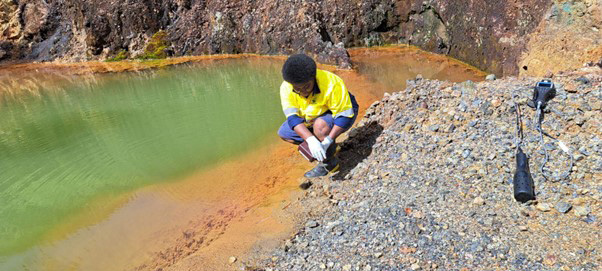
Samuel Voss, a second-year mechanical engineering student from The University of Queensland, was first interested in the Stone for Development program during a sustainable engineering elective when students were given a short presentation on the course. Despite being unable to participate at the time, Samuel waited and applied for the most recent offering.
“I was interested in the course as it combined my passion for sustainable development with actual work experience and I was excited to learn more,” said Samuel.
“If you asked me how I would be spending my semester break at Uni at the start of my degree, I probably wouldn’t have said ‘Doing geological work for a sustainable project in Fiji’”.
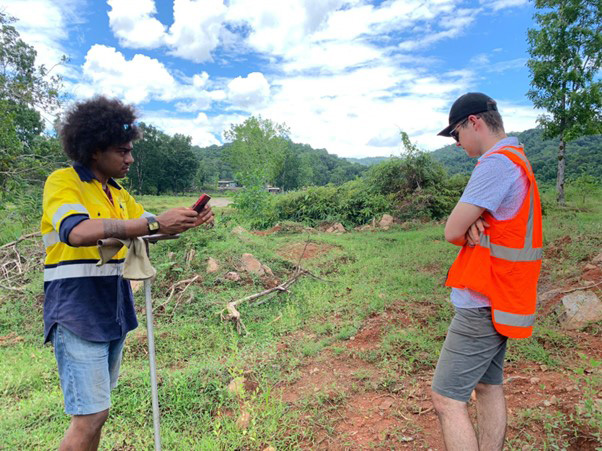
Coordinated by Dr Gary Flomenhoft, the first online class was an introductory session and an opportunity for students to meet and connect with classmates from across the Solomon Islands, Tonga, Papua New Guinea, Nauru, Australia and Fiji, and to connect with project leaders, as well as the program leader Professor Daniel Franks and program facilitator Dr Paul Rogers.
“I found the online classes quite interesting as it was a different learning experience from what I had at the local university”, said Miriama.
With his mechanical engineering background, Samuel found the online component very helpful in learning more about the context of Development Minerals and what’s required for the projects.
As they all convened in Fiji for their field work, the participants worked on two sustainable development topics; 1) Sustainable sourcing of materials for low carbon cement in the Pacific, and 2) Disaster Preparedness Assessment: Building Resilience in Fiji’s Quarry Sector.
Miriama led the Disaster Preparedness Assessment: Building Resilience in Fiji’s Quarry Sector project which was in line with her field of work related to quarries. With the assistance of local partners, Miriama and her team were able to visit quarry sites, interview the quarry managers and owners as well as other stakeholders.
“During this work integrated program, I have come to understand more about the impact of damages after a natural hazard and disaster on our everyday lives and the importance of the quarry sector for infrastructure and construction in preparing communities for disaster and building resilience sustainably,” she said.
“It was a great experience as we got to share our local cuisine and culture (e.g., the famous Kava drinking, a Fijian social drink) with the rest of the participants whilst completing our field work and compiling our data for our final presentation.
“I gained so much knowledge and confidence through networking with my peers. I can say that this program has really urged my hunger to continue my studies and integrate the knowledge I gained into the work I carry out. Vinaka Vakalevu! Thank you!”
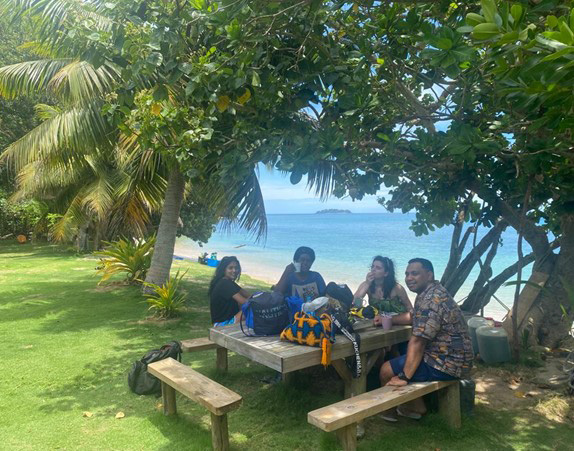
For Samuel, the in-person component of the program in Fiji was the highlight of his learning experience. During his time working on the low carbon cement in the Pacific project in Fiji, he had the opportunity to gather real work experience.
“Despite studying a different discipline to much of the work I completed, the program has solidified my passion for sustainable and ethical development, and I look forward to eventually working in a similar space in the future,” he said.
“The opportunity to work with such diverse people and be guided by such great leaders from the Sustainable Minerals Institute was invaluable.
“The group work, planning and presentation elements I learnt as a team leader will be incredibly useful in the future as I continue my studies.
“In addition, the program allowed me to learn an incredible amount about Pacific Island communities and their cultures. I cannot recommend Stone for Development Work Integrated Learning enough.”
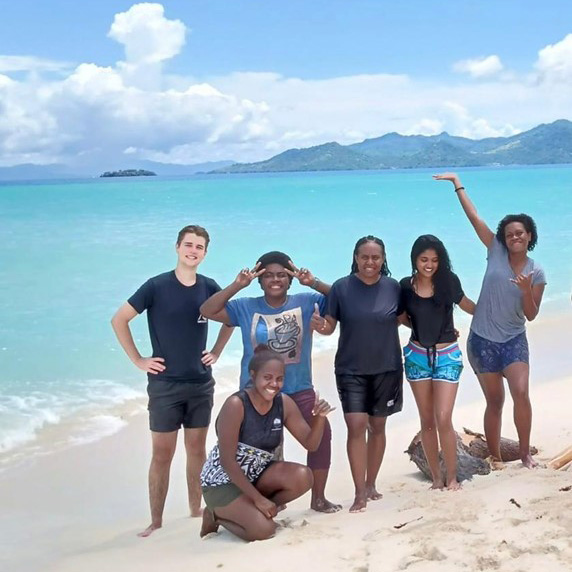
To learn more about the Stone for Development Work Integrated Learning, visit the webpage or contact the Development Minerals program devmin.admin@uq.edu.au.
